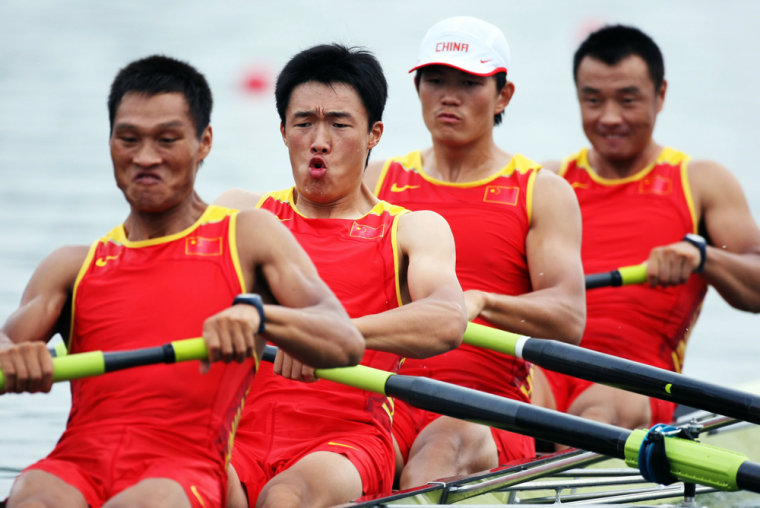Red might be more than just a lucky color for Chinese athletes competing at the Olympics.
A study has found choosing the color red for a uniform in competitive sports can affect the referee's split-second decision-making ability and even promote a scoring bias.
Red is thought to bring good luck for Chinese and is the color of items ranging from packets of lucky money handed out at Lunar New Year to lanterns and wedding dresses.
And Tiger Woods famously wears red on the last day of a golf tournament for luck.
Now psychologists Norbert Hagemann, Bernd Strauss and Jan Leissing from Germany's University of Muenster have found referees tended to assign more points to taekwondo competitors dressed in red than those dressed in blue.
The study, published in the August issue of Psychological Science, was conducted by the researchers presenting 42 taekwondo referees with videos of blue- and red-clad competitors sparring.
The two sets of clips were identical except that the colors were reversed in the second set so the red athlete appeared to be wearing blue and vice versa.
After each video the referees were asked to score the performance of each competitor, red or blue.
The psychologists said competitors wearing red were awarded an average of 13 percent more points and the points seemed to increase after the blue athlete was digitally transformed into a red athlete and decrease when the red competitor turned blue.
"Referees' decisions will 'tip the scales' when athletes are relatively well-matched but have relatively small influence when one is clearly superior," the researchers said in a statement.
"Although there is a need for further research, including research on the effects of different colors, our results suggest a need to change the rules or support referees by providing electronic decision-making aids in those sports in which this color bias may be a problem."
